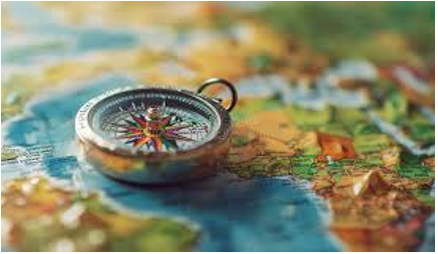آئی این پی ویلتھ پی کے
Faiza Tehseen
Pakistan’s tourism destinations, including diverse landscapes and heritage, can be properly showcased by making use of technologies like GIS (geographic information system) and interactive maps to increase the footfall of both local and foreign tourists.

"Easy access to picturesque sites, comprehensive information on them, improved route planning and smart mapping are critical in promoting quality tourism in Pakistan,” stressed Aftabur Rehman Rana, Managing Director of the Pakistan Tourism Development Corporation (PTDC).
Talking exclusively to WealthPK, he said the combination of digital mapping, Artificial Intelligence and local empowerment are key tools for preserving Pakistan’s geological tourism legacy.
He said that well-mapped trails are imperative for a thriving sustainable tourism economy. “It is time to promote under-explored areas and cultural landscapes — from Margalla hills to Khunjerab, Hingol’s mud volcanoes to mesmerising Salt Range, and ancient fossil remains.”
Rana said: “Well-established geo-parks through smart mapping are necessary to foster development, particularly in remote areas, and protect historical and green heritage for both eco and adventure tourism. Geo-mapping can act as a central strategy in this regard because it provides an insight into natural resources as well.”
The PTDC managing director said that Pakistan’s existing national mapping capacity needs scaling up. “Despite having a modern GIS satellite method for critical purposes, including tracing mineral zones, public access to tourism-grade smart maps remains scant. The same applies to navigation, data analytics and location-based marketing tracking systems.”
He said: “TPL (Technology Pioneers Limited) maps, the first indigenous mapping service in the country, cover about a million of addresses, including around 1,000 3D building models and at least 300,000 kilometres of roads, which primarily facilitate urban areas only. There is a dire need to spread in-kind seamless mapping for remote areas also.”
Rana said that smart geo-mapping is important to facilitate self-exploration, conservation, and community uplift by providing access to local hospitality and businesses, and improving research and development. “Such tailored framework is helpful in mobile geo-tourism apps, local and global mentorship, piloting geo-parks and capacity building.”
“So, rolling out a national geo-tourism mapping framework is crucial to integrate Pakistan with the global geo-tourism map,” the PTDC managing director said. Highlighting the need for smart geo-mapping for a flourishing tourism sector, Sahib Noor, Chief Executive Officer of tour operating company Concordia Expedition Pakistan, said: “Rising global interest in sustainable and experiential tourism, supported by smart geo-mapping and AI-based connectivity, is strengthening the economies of different countries.
The competitive edge of Pakistan in holding unique tourist destinations is underutilised yet mainly because of limited accessibility through proper smart mapping infrastructure.” “Many remote areas in the country are rich in heritage, and promoting tourism can help develop the economy of these regions. Policymakers should consider this,” he said.
Credit: INP-WealthPk


